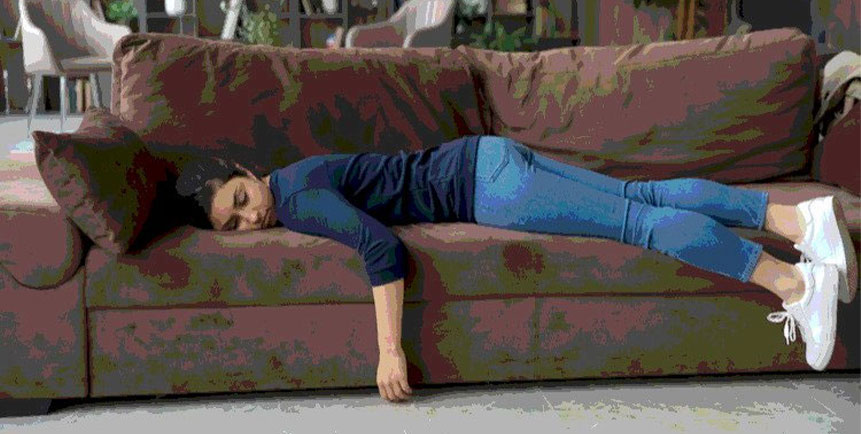Why do teens love to sleep late?
Most teenagers love to sleep late (and get up late!), but do you know there is science behind it? Well, next time your parents scold you for not sleeping on time, tell them to check out this article in the Science Lab!
No matter how strongly you make a strict time table with shiny pens in your diary that you will sleep at 11:00 pm and wake up at 6 in the morning, teenagers tend to break this rule all the time! Snoozing all day and awake all night! Neend hee nahi aati! But it is not entirely your fault.

Puberty to blame?
All teenagers undergo many changes during puberty – both mentally and physically. However, one important change that also happens during this time of puberty is your sleep. Your circadian rhythms change. Wait, what rhythm?
According to the Sleep Foundation, circadian rhythms come from the Latin word – “circa diem” which means “around a day” in English. So these are 24-hour cycles that are part of our body because of an internal clock that carries out various bodily functions.
Before puberty, teens feel sleepy around 8:00 or 9:00 pm. When puberty hits around the age of 11-13, this rhythm shifts a couple hours later. Now, their body tells them to go to sleep around 10:00 or 11:00 pm. This is a very natural shift in a teen’s body and is called “sleep phase delay.” The requirement for sleep is delayed for about two hours.
When it first happens, the teens find it tough to sleep at their usual time, hence you eventually begin to sleep late. This change is a normal part of adolescents but you should make sure that you do not further delay your sleep by distracting ourselves with gadgets.
Let’s look at some other reasons why teens sleep late:
Time pressure
Frequently preoccupied with multiple assignments and homework to the point of exhaustion, may result in many teens failing to allocate adequate time for sleep. You may stay up late during the week to complete homework or on weekends to hang out with friends, both of which can reinforce the night owl schedule.
Excess use of electronic devices
Sleeping problems can be amplified by late-night screen time. Using these devices can keep the teenage brain wired and incoming notifications can disrupt and fragment sleep. Evidence also suggests that exposure to cell phone light suppresses melatonin production.
Sleeping disorder
Teens can suffer from sleep disorders such as Restless Leg Syndrome (RLS), which causes a strong urge to move the limbs when lying down, and narcolepsy – chronic sleep disorder characterised by overwhelming daytime drowsiness and sudden attacks of sleep; which affects the sleep-wake cycle.
Neuro developmental disorders and mental health problems
Attention-deficit/hyperactivity disorder (ADHD) and autism spectrum disorder (ASD)20 – a type of mental disorder, can make it difficult for teenagers to sleep well. However, that can be diagnosed by a doctor only.
Anxiety and depression, for example, can make it difficult for teens and adults to get enough sleep. Inadequate sleep can also contribute to these conditions, creating a bidirectional relationship that can exacerbate them.
The way out: How to sleep on time
The way out: How to sleep on time
- Avoid coffee or tea/energy drinks in the evening.
- No matter what, shut the lights at a fixed time ( not later than 11 pm) every night.
- Do not have a television in the bedroom. It is a distraction.
- Switch off your electronic devices, especially laptops/computers/mobile phones around a fixed time every night.
- Have an early dinner by 9 pm as sleep is good when your stomach is full.
- Do some form of exercise in the evening/morning to exhaust your energy. A tired body demands sleep on time.
- Have a bath with warm water before sleep, or wash/dip your feet with warm water to facilitate sleep.
- No matter how sleepy you feel in the afternoon, avoid sleeping for long. Take a power nap of 15-20 min maximum but not beyond that.


